The Tajuddin Ahmad persona: Tales of a Liberation War leader
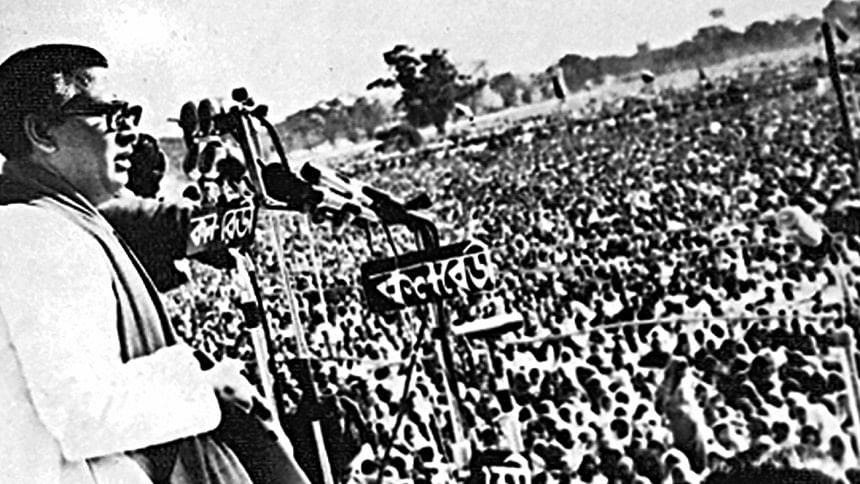
Without him, the history of the birth of Bangladesh would be incomplete. After all, Tajuddin Ahmad was the prime minister during the wartime Mujibnagar Government, leading and navigating through the numerous harrowing challenges the Liberation War threw during those fateful months of 1971.
Much has been said about this national leader -- his glorious political career, uncompromising patriotism, integrity, and the bond he shared with Bangabandhu Sheikh Mujibur Rahman. But how much do you know him as a person, the man behind the institution?
That's another chapter, a more intimate one, and a fascinating one at that, as Tajuddin's persona, his habits and thoughts, and approach towards work are very inspiring. And hence, it is this chapter we present you today, in celebration of the upcoming Independence Day.
"Where is Tajuddin?" the Pakistani soldiers demanded when raiding his home in the horrifying night of 25 March, 1971
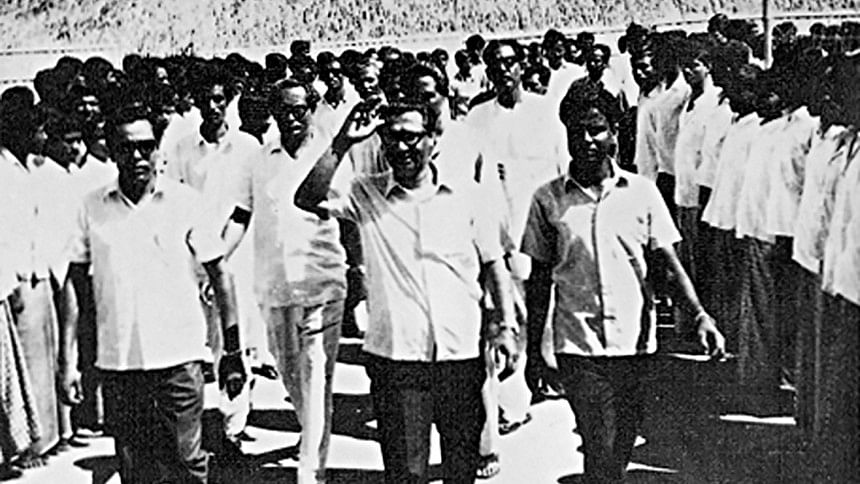
Dhaka was burning. Gunfire and chaos took over the city as the military unleashed its monstrosity over the Bengali people. But by the time the soldiers went to his house, Tajuddin, a key Bengali leader, had fled in a rush.
A chit handed to his wife later, read something like this: As I left so quickly, I could not properly bid farewell to you all. I am leaving. Blend in with the 75 million people. I do not know when we will meet again — AFTER LIBERATION.
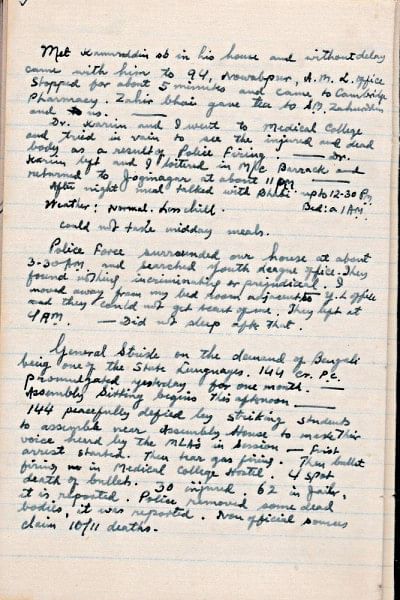
'Muktir por,' or 'after liberation,' were written in big, bold letters; a mark of determination and passion, perhaps.
The chit was written by 'Dolonchapa' -- none other than Tajuddin himself — a secret pseudonym he sometimes used when writing to his wife.
And the rest is history. He went on to form a government-in-exile along with fellow leaders; created under the most extraordinary circumstances, with the equally extraordinary purpose of liberating the country.
Half a century later —just last week — to better understand this extraordinary man, I flipped through the pages of his diaries, in the anticipation of getting a glimpse of Tajuddin as a man.
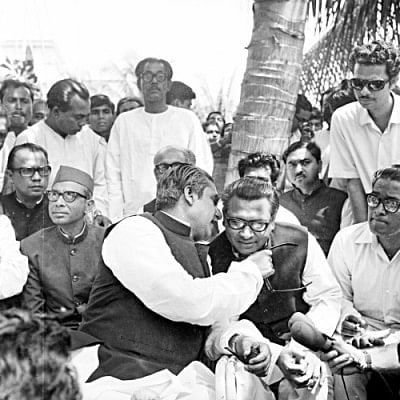
Simeen Hussain Rimi, daughter of Tajuddin Ahmad and a member of the parliament, guides me throughout. She points out that a main subject of his entries were the people he met — not just his colleagues at meetings, but common men too; a farmer, a boatman, and so on.
People, it seems, was at the core of his heart.
There are also notes of major world events, and of prices of commodities and the seasonal effects on farm produce, she adds.
Amidst all that, he did not forget to take note of the weather.
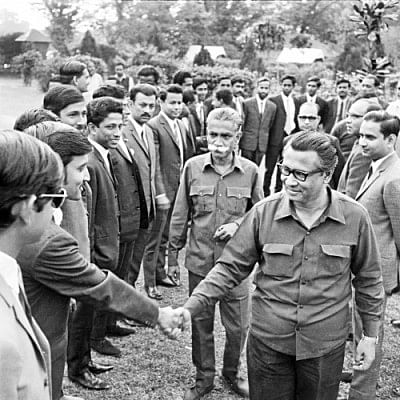
"There was a fair shower of rain from about 5pm to about 5.45pm. Temperate atmosphere. Clear night," one entry reads.
He also kept records of what times he woke up every day and went to bed, for example, daily entries begin with and end with, for example, "Rise: 6am." and "Bed 11pm."
Tajuddin Ahmad was one very meticulous individual. His diary entries, neatly written in English, had minimal cross outs and corrections.
He took good care of what he did, as reflected in his diaries. For his 1954 diary, he used one which was originally of the year before; 1953 that is. But since Tajuddin was writing in that notebook a year later, he cleanly and meticulously overwrote '4' over '3', hence making it 1954, also crossing out the day of the week and rewriting it correctly. All these, he did over and over again throughout daily entries!
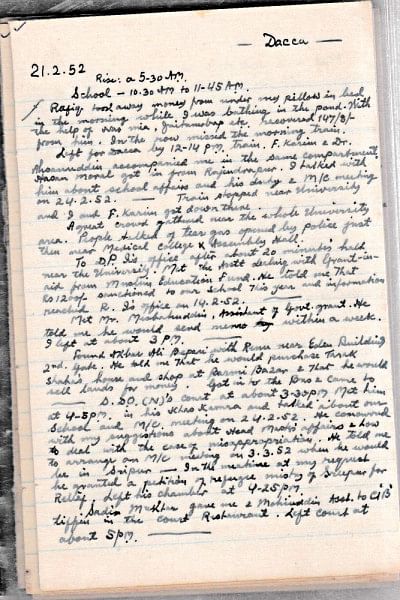
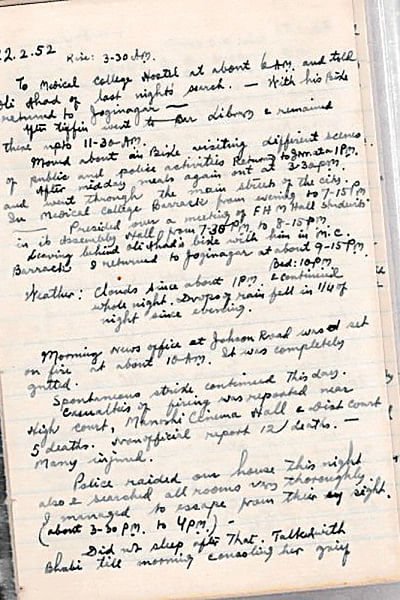
The man indeed had a lot of patience. But time was in short supply for him, I suppose, given the sheer amount of work and responsibilities he had. How did he manage his time, one could wonder.
Rimi replied by shedding light on his sense of punctuality, "If he gave someone a particular time for an appointment, he always maintained it exactly. I have even heard that if Tajuddin somehow came a little earlier, he would wait (in car, rickshaw or whatever) until the set time struck."
Indeed, there was an immense attention to detail — might I dare add, quite an eccentric attention to detail — that becomes apparent when seeing how he went about his day.
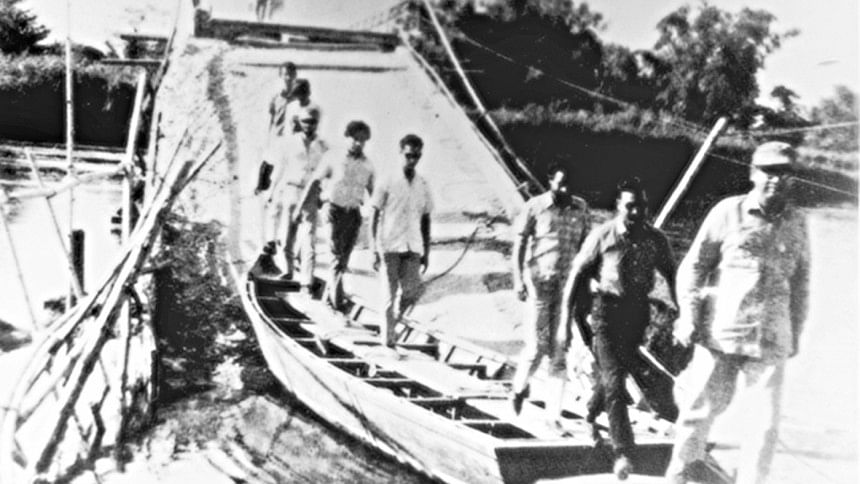
And then, when that appointment time arrived, what was it like meeting this leader face to face?
"There was always something or other we got to learn from him," the current MP narrated from the memories of many of her father's friends and colleagues. "He was like a magnet to us. It felt like he was a teacher showing the path towards light."
A brilliant orator, but at the same time, he was pragmatic enough to tailor his magnetism to the occasion.
Case in point: during a seminar, he had said in good humour that if he gave a 'Poltoni speech' there, it would not serve the purpose. Instead of giving a burning and inspiring speech, he would rather discuss the relevant and important matters of the seminar.
He was a practical man.
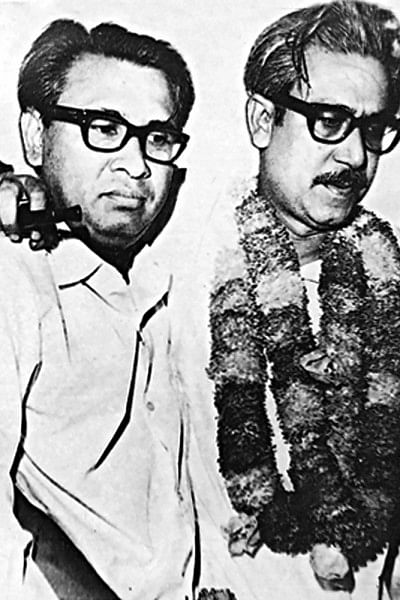
And a highly disciplined one too. He used to regularly exercise in the morning. He also loved gardening.
There are anecdotes where it is said that he used to wash his own clothes. It had also been observed that when he put his clothes for drying, he made sure that no corners or sides were crumpled, that they were properly laid out.
Despite been a leader of his stature, you will be awed by his simplicity. After the war, when he was the finance and planning minister, he would just go out on a bicycle (much to the panic of his security officer) and roam about the markets on his own to gain insights before the national budget.
"I have even heard from his security officer of an instance where the car broke down, and Tajuddin himself helped push the car," Rimi said.
During the depths of the Liberation War, Tajuddin one day seemed to be rather disturbed and unwell. When asked whether he was ill or not, he replied that it was raining heavily the night before, which made him ponder of the suffering at the refugee camps in such a harsh weather, and thinking of it, he couldn't sleep at night.
Such was his compassion. And yet, this compassionate patriot's fate tangled up with the ugly 1975 coup. He was murdered in jail, just a brief few years after the Liberation.
Today, when looking back, we perhaps mainly see him as our first prime minister, a political genius, a hero who spearheaded the war -- a legend. Fair enough. But a legend is someone above and beyond us; one ought to also see him as a man of flesh and blood, just like you and me.
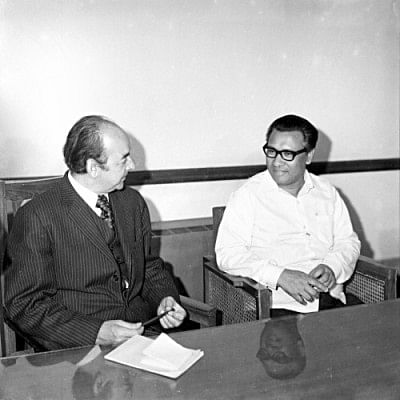
Because that will bring us closer to Tajuddin; understand him more intimately. He would not mind that, I assume, given his down to earth and unpretentious character.
By doing this, we can see him on a more personal level — his humane qualities, the attention to detail, discipline, hard work, analytical ability, pragmatism, honesty, and humility — and hence draw inspiration and strive to be a bit like him in our own lives.
Special thanks to Simeen Hussain Rimi for sharing Tajuddin Ahmad's diaries and providing valuable insights for the write-up.
Photo: Courtesy of Simeen Hussain Rimi

 For all latest news, follow The Daily Star's Google News channel.
For all latest news, follow The Daily Star's Google News channel. 



Comments